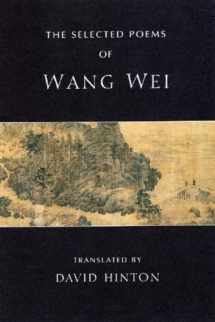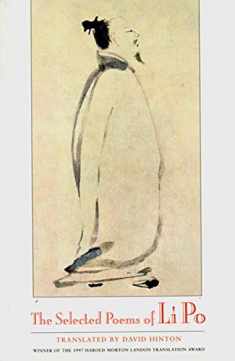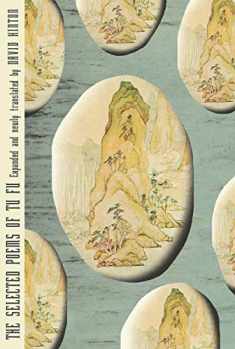
The Selected Poems of Wang Wei
ISBN-13:
9780811216180
ISBN-10:
0811216187
Edition:
First Edition
Author:
David Hinton, Wang Wei
Publication date:
2006
Publisher:
New Directions
Format:
Paperback
128 pages
FREE US shipping
Book details
ISBN-13:
9780811216180
ISBN-10:
0811216187
Edition:
First Edition
Author:
David Hinton, Wang Wei
Publication date:
2006
Publisher:
New Directions
Format:
Paperback
128 pages
Summary
The Selected Poems of Wang Wei (ISBN-13: 9780811216180 and ISBN-10: 0811216187), written by authors
David Hinton, Wang Wei, was published by New Directions in 2006.
With an overall rating of 3.8 stars, it's a notable title among other
books. You can easily purchase or rent The Selected Poems of Wang Wei (Paperback) from BooksRun,
along with many other new and used
books
and textbooks.
And, if you're looking to sell your copy, our current buyback offer is $0.52.
Description
David Hinton, whose much-acclaimed translations of Li Po and Tu Fu have become classics, now completes the triumvirate of China's greatest poets with The Selected Poems of Wang Wei.
Wang Wei (701-761 C.E.) is often spoken of, with his contemporaries Li Po and Tu Fu, as one of the three greatest poets in China's 3,000-year poetic tradition. Of the three, Wang was the consummate master of the short imagistic landscape poem that came to typify classical Chinese poetry. He developed a nature poetry of resounding tranquility wherein deep understanding goes far beyond the words on the page―a poetics that can be traced to his assiduous practice of Ch'an (Zen) Buddhism. But in spite of this philosophical depth, Wang is not a difficult poet. Indeed, he may be the most immediately appealing of China's great poets, and in Hinton's masterful translations he sounds utterly contemporary. Many of his best poems are incredibly concise, composed of only twenty words, and they often turn on the tiniest details: a bird's cry, a splinter of light on moss, an egret's wingbeat. Such imagistic clarity is not surprising since Wang was also one of China's greatest landscape painters. This is a breathtaking poetry, one that in true Zen fashion renders the ten thousand things of this world in such a way that they empty the self even as they shimmer with the clarity of their own self-sufficient identity.

We would LOVE it if you could help us and other readers by reviewing the book
Book review

Congratulations! We have received your book review.
{user}
{createdAt}
by {truncated_author}




